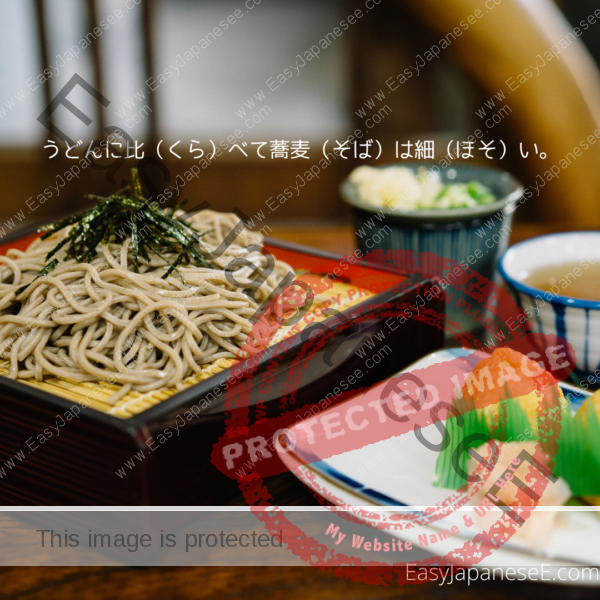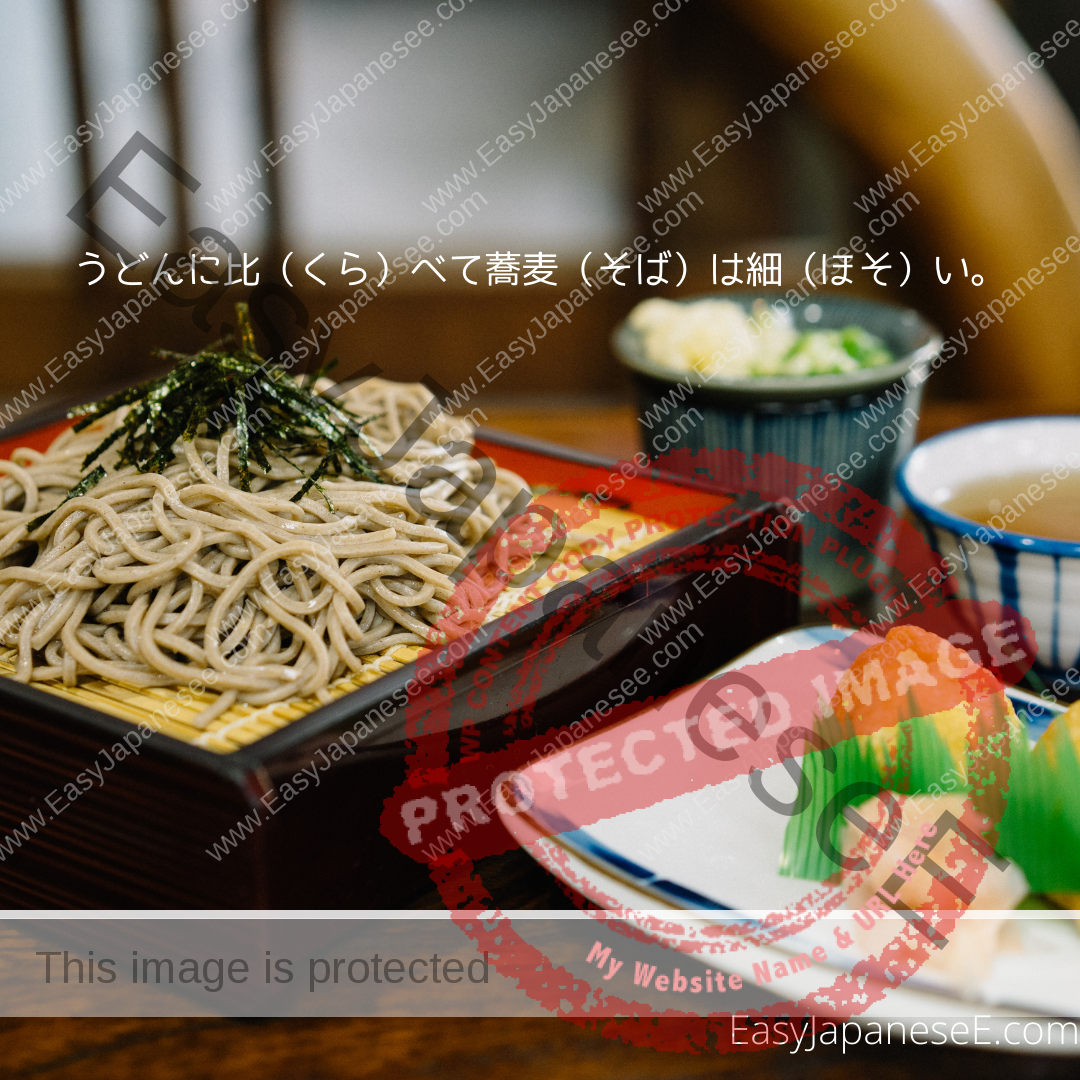
Today’s Grammar Point: ~にくらべて/~にくらべると/~とくらべて/~とくらべると
くらべる/比べる means “to compare.” As we can say “to compare A with B” or “to compare A to B” in English, we can say “A を B とくらべる” or “A を B にくらべる” . In my opinion, ~と is more like “with” and ~に is more like “to.” When we use くらべる as part of a sentence like, “compared with/to …” we use either ~に/とくらべて (てform) or ~に/とくらべると ([dictionary form verb] + と).
Connections
- [noun] に くらべて
- [noun] に くらべると
- [noun] と くらべて
- [noun] と くらべると
Examples
去年に比べて、今年は雨が多い。
Compared to last year, we have more rain this year.レモンに比べてブドウは糖分が多い。
Compared to lemons, grapes have more sugar content.うどんに比べて蕎麦は細い。(Today’s caption)
Compared to udon noodles, soba noodles are thinner.東京に比べると京都はかなり静かだ。
Kyoto is much quieter than Tokyo.中国語に比べると、日本語は簡単だ。
Compared to Chinese, Japanese is easier.フランス語に比べると、英語の文法はわかりやすい。
Compared to French, English grammar is easier to understand.ローマ字と比べて、ひらがなは読みやすい。
Compared to Roomaji, Hiragana is easier to read.シドニーと比べて、メルボルンは交通の便がいい。
Compared to Sydney, Melbourne has better transportation.金と比べて、銅は用途が多様だ。
Compared to gold, copper has more versatility.レモンと比べるとオレンジは随分甘い。
Compared to lemons, oranges are much sweeter.英語と比べると、日本語の発音は易しい。
Compared to English, Japanese pronunciation is easier.去年と比べると、今年の夏は随分涼しい。
Compared to last year, this summer is much cooler.
If you liked this article, please share it with your friends using the social media buttons below. Also, your clicks on ads on this page help covering the cost of running this website. Your support will be much appreciated.

